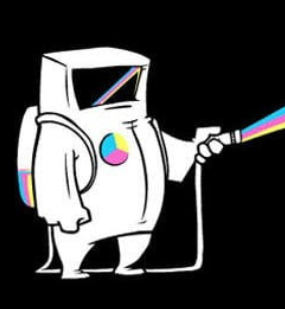Hello everyone. Growing up I was in a special education class pretty much all through school (4th grade on). I had learning disabilities and social difficulties (still do). I was never actually diagnosed with anything. I just accepted it for what it was and never looked into it untill recently. I went over my symptoms then looked into autism and noticed quite a few similarities. I took a few of the tests online and my results said I was on the spectrum and that I have at least half the symptoms on the test and to consult a physician.
I’m 31 now and I’m not sure how getting a professional diagnosis will help me at this stage in life other than closure I guess.
What are your thoughts?
Edit: Thank you everyone for your responses I really appreciate it! I will look into getting a professional diagnosis.
Honestly. It’s not a bad idea. With an official diagnosis, it’ll remove the uncertainty of a lot of this and allow you to focus on how to deal with it in a better way, whether that’s finding support, medication, or just general information on how to deal with it.
I was diagnosed at 41. I needed the confirmation so I could stop doubting myself, thinking I was just trying to convince myself to come up with excuses. It helped me reach out to resources and learn how to adapt my life to my autistic brain rather than following the prescribed NT path. For one, I could adjust my masking to the social setting rather than feeling like a fake person all the time, even alone, convincing myself that I have to act “normal” constantly or asking myself, “Why can’t I be normal? What’s wrong with me?” For another, I started to choose my environments and friends more carefully, which has let me feel more at ease as I’m around less overwhelming stimuli and bullies/abusers. My life has significantly improved since then. I highly recommend it. Let me know if you have any questions!
Yes! It is always worth it to have a professional diagnosis. You never know what the future holds and if you need any time for medical reasons at your job a diagnosis will help. Medications require a diagnosis. A diagnosis helps if you decide to do therapies to improve your abilities.
The below video is a great exploration of the topic. I personally feel that if it is going to help you validate your need for support and especially if it will help you get support then it has value. I can also see how one could decide it does not have sufficient value to go through the process and be diagnosed.
I got diagnosed at the age of 35, and it somewhat improved my relationship with my wife, because it helped her understand some things. But as with many other diagnoses that pertain to mental health, it’s never a clear cut thing, so I still have doubts as to whether it’s actually ASD or not.
If you can afford it, do it. It will help you when you need to get accommodations at work.
And if you were in a special education class, you had a diagnosis. It’s likely your diagnostician was arranged by the school (they tend to work for social services, and they have access to schools because a lot of needs for their services are first identified when kids go to school and interact with others for the first time), and a diagnosis was a part of getting you into special education.
I’ll openly admit that the last time I did it, it was mostly to update diagnoses (I was late-diagnosed, but that was still in the 20th Century) and ensure that my therapist actually knew all my diagnoses. Because she didn’t. Hell, my shrink never ran the full workup because they were able to get the info relevant to treatment from my GP.
I like Taylor Tomlinson and her take on mental illness: https://youtu.be/QHvPWnuae6M
I’m in the process of being tested myself. For me the benefits would be that I have a clear path to treatment/help, and financial supports that would otherwise be unavailable to me.
I’m 46 years old and undiagnosed, but getting a professional diagnosis is not a priority for me. My take is that unless you have support needs that requires some sort of bureaucracy to kick in or have concerns about other mental health issues (depression, clinical stress, etc), getting a professional diagnosis is optional.
If you think that getting a diagnosis will bring you some closure, then I think you should investigate that path. But in my opinion the diagnosis should be the means to an end, not the end itself. Closure and self-realization is certainly a valid reason for looking into getting a diagnosis. Getting professional help does not necessarily means getting the diagnosis. You might end up getting screened using tools not quite unlike your online tests, and then after some discussion about what it means to you, decide not to progress further with diagnosis but just continue some sort of therapy session.





